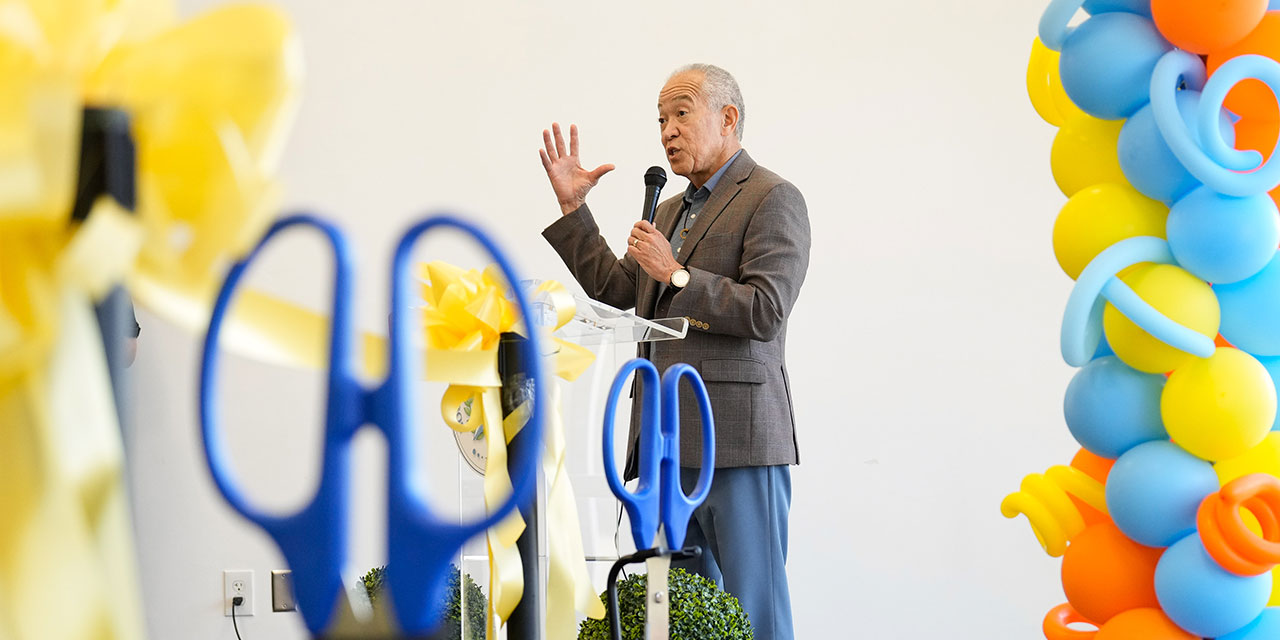
Neetu Arnold joins Brian Anderson to discuss how Houston’s public schools have halted Covid-era learning losses as a result of direct instruction and a no-nonsense approach to discipline.
Audio Transcript
Brian Anderson: Welcome back to the 10 Blocks podcast. This is Brian Anderson, the editor of City Journal. Today we’re joined by Neetu Arnold to discuss changes that some public school districts are making to recover from the learning losses of the Covid years. Neetu is a Paulson policy analyst at the Manhattan Institute and her focus is typically on K through 12 and higher education. Her writing has appeared not only in City Journal but in the Wall Street Journal, Unheard and Tablet and other outlets. Previously she was a research fellow at the National Association of Scholars where she published reports on college affordability and foreign influence in universities. So welcome. Good to have you on 10 Blocks.
Neetu Arnold: Thank you, Brian. It’s a pleasure to be here.
Brian Anderson: You’ve recently written a very interesting report in City Journal that looks at the new superintendent of the Houston Public Schools, Mike Miles, whose approach to the classroom has resulted in what seemed to be very substantial improvements among the worst performing schools in Houston in a district that had struggled in recent years. As you note, federal data released this year show that Houston has now halted its pandemic-era learning loss in both reading and math. What you describe is in part what Miles is calling a new education system, an NES, and it’s based on a curriculum that’s incorporating direct instruction, which is a method a pedagogy developed in the 1960s that we’ve written about quite favorably at City Journal over the years. To start with, if you could describe what the NES is, what is this New Education System and what is it that is at the heart of direct instruction that may be working here?
Neetu Arnold: The improvement we’re seeing in Houston is a big deal, especially when it comes to urban education. A lot of the improvements that we’re seeing in Houston, it’s not something many districts can say, and when you look at the data even closely for reading and math, you see improvements not only for the highest performing students, but even the lower performing students, and that was not a general trend that we saw across the nation. This is something that was specific to Houston. I think it’s interesting to look at the New Education System Model, NES, which was instituted under Mike Miles, when I spoke to him, the way he described why he was even instituting this kind of system, it’s really about making system-wide changes across public schools. It’s not just about making little changes to work within a system when you have year after year dismal results, business can’t go on as usual, and so he’s been making these large-scale reforms.
We’re seeing, for instance, he’s increased teacher pay, whereas normally the district would pay teachers around $60,000. He’s paying 80,000 for teachers who work at NES schools. And just to clarify very quickly, NES schools are designated for some of the worst performing schools in Houston and they often have low income students. We’re seeing higher teacher pay in part to recruit new teachers to the district and to also give them a motivation to work at these schools under a different model. Change can be very difficult, so it’s important to have some sort of motivation. There’s also an aspect where the school hours are much longer. It’s also to accommodate working parents, but it doesn’t just stop at funding.
I think what was interesting and what really caught my attention was the focus on direct instruction. Direct instruction is controversial in certain education circles. I don’t think it should be, but it is controversial because it’s often seen as authoritarian and controlling and it stifles student creativity. Direct instruction is where teachers are taking an active role in student instruction. They’re guiding classrooms, they’re teaching at the front of a classroom. A lot of what education sector promotes today is more based on student-centric learning where students are in the driver’s seat of their education. But as Mike Miles told me, when students don’t know how to read or do math, they’re not in a position to guide their own education.
Brian Anderson: Yeah, that’s very different. This kind of student-centric learning has dominated K through 12 public education for a long time, but the results have been pretty awful as you suggest. How have they been received, these curriculum reforms, though in Houston by parents and students? Are they happy with the results? Are they finding it authoritarian?
Neetu Arnold: I think some of the responses you’ll hear some teachers that really like this curriculum and some that don’t. Some parents who are on board and some that are not. I think there’s some mixed reactions in part because it is just new, it’s different and it does require more attention from teachers and so some teachers, this is not something that works for them. This additional attention and there’s accountability, there’s part of direct instruction might mean you’re getting feedback on a consistent basis to improve instruction and that can feel like someone’s monitoring you. There’s been some of that reaction, but I also think that the teachers who are seeing good results from their students that are seeing immediate improvement, I guess they’ve been seeing this positively.
I would say the reviews are mixed. One thing I did notice, my discussion with Mike Miles was more on just the general practices occurring at NES schools, but I was looking through local coverage on this issue and I remember seeing a YouTube video. There was a parent and a child and they were rating how NES schools were working. This was about a year ago when the system was still rolling out. They were asked questions on how’s the school environment, how’s the teacher, how are the classes? And I did notice that between the parent and the student, the student seemed to have a more favorable view than the parent. I thought that was an interesting observation. There could be multiple reasons for that, but it was an interesting thing to see that the child in the classroom had a slightly more favorable view than the parent.
Brian Anderson: You mentioned another aspect of this, which is the simultaneity of the reforms that everything gets implemented at once. I wonder, has that been challenging compared with a more incremental approach? How much else is entailed by this comprehensive reform beyond the change in curriculum?
Neetu Arnold: I mean, Superintendent Miles told me that it is challenging to do the kinds of changes that he’s doing because you’re going to have pushback, whether it’s from the teachers’ unions who feel like they’ve lost control over some of the decision making in the district. It can be very difficult to, I guess again, when it comes back to making large scale changes, there can be uncertainty and you’re dealing with a lot of emotions and sometimes these things just take time to overcome. It seemed like he seemed very committed to making sure that these changes go through, because at the end of the day, it’s really about making sure that students get the best possible education. I’d say it can be difficult, but it really is about time and making sure that people can see the results.
Brian Anderson: Another aspect of the model is a different approach to discipline. Right, so the NES approach separates students who are disrupting classrooms and requires them to attend class remotely, right?
Neetu Arnold: Yes. So something that Superintendent Mike Miles told me was that there are three rules that students are expected to follow: No disrespecting adults, you cannot disrupt class, whether it’s just getting up and walking in the middle of the classroom or throwing items, and no bullying. So whenever those rules are broken, students are removed from the classroom. They’re sent to a different room where there’s an adult and they are required to attend class virtually through Zoom, which he told me kids hate that because it’s essentially a timeout with a study, and this is how they deal with lower level infractions, which can cause disorderly classrooms.
Brian Anderson: How has that shift in disciplinary approach worked?
Neetu Arnold: They’ve actually seen decreases in student discipline for code violations and violence. One thing to note is they also did remove students from more serious infractions. They go to alternative educational programs, and I think that would probably play a significant role in also having orderly classrooms just because, so the students are sent to the alternative programs, they’ve typically engaged in more serious infractions, for example, weapons possession. I think a combination of sending students to alternative educational programs and also removing students who are just engaging in lower level infractions. I think it creates a school environment where the rules are clear and it also provides a space for the students who aren’t doing anything wrong to learn.
Brian Anderson: So that’s interesting. So there has been though a decline in sort of infractions and disciplinary problems. That seems significant. You mentioned as well the longer school days and higher salaries for teachers accompanying those, what’s going on in the extra hours? Is it just afterschool activities or are there extra learning opportunities?
Neetu Arnold: So my understanding is that the class time is spent, there are 90 minute sessions for forces. The first 45 minutes are spent where students are learning the material, whatever the objective of the day is. Then students receive a 10 minute quiz. It’s an opportunity for teachers to check what students have learned. The teachers take the results from those tests and determine if students need extra assistance or not. And so then in the last 45 minutes of that particular class, if students didn’t score that well, they will receive extra help. And then the students who are proficient or they’re going above and beyond, they’re sent to a separate room and they can engage in independent study.
Brian Anderson: I see. We’re certainly seeing some indicators of success with these NES schools in Houston. How many schools are implementing this? These are the worst performing schools, right? Are there plans in place at all to expand the reforms across the entire Houston independent school district?
Neetu Arnold: So currently 130 schools are designated as NES schools. As of right now, there aren’t any plans to expand that title. Something else Superintendent Miles told me was that the model that works for NES, that’s going to work for some students, but it’s not necessarily needed for all schools. For their performing arts schools, some of their higher performing schools, the methods that are used in NES may not be appropriate for those students. This is really about providing a lot of support and attention to the students that need it the most.
Brian Anderson: I see. But it is conceivable that you could scale this kind of approach that does seem to be working in Houston and certainly other urban school districts facing struggling students that are not doing too well academically. They might be able to learn from this approach and experiment.
Neetu Arnold: Absolutely. I mean, I think the back to basics approach to education is the way to go. Going back to common sense methods, traditional education, taking discipline seriously, using data to inform how to best help students. I think those are the broad lessons that we can learn from Houston, and there are many other places that we’re seeing apply this. Louisiana, Alabama, there were some of the bright spots in curbing Covid learning loss and seeing improvements in reading and math scores. And so I think this back to basics approach, relying on good research and not educational fads is proving to work, and that is something that we should see more schools pursue.
Brian Anderson: Hopefully we will see that and some of what is working in Houston can be scaled to other school districts. I really appreciate it, Neetu. It was a fascinating piece. You can find Neetu Arnold’s writings on City Journal’s author page. We’ll link to it in the description. You can also find City Journal on X @CityJournal and on Instagram @CityJournal_mi. If you’ve enjoyed this podcast today with Neetu Arnold, please give us a nice rating on iTunes. Thanks very much. I really appreciate the time on the show today.
Neetu Arnold: Thank you.
Photo: Yi-Chin Lee/Houston Chronicle via Getty Images
















